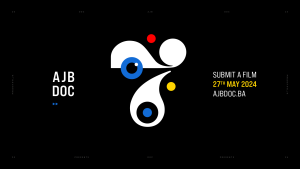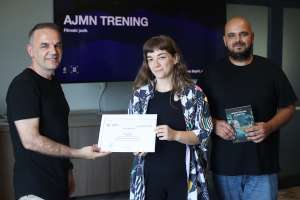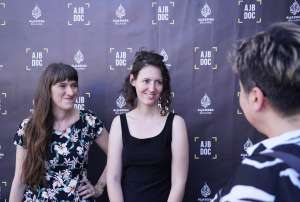SARAJEVO, September 23 (FENA) - The difference between investigative and regular journalism is that regular journalism informs the public about events by basing reports on official statements, while investigative journalism questions the veracity of those statements, said award-winning British journalist Phil Rees in an interview with FENA.
Rees leads a workshop titled "Storytelling using Investigative Journalism", organized in Sarajevo as part of the second edition of the Al Jazeera Balkans Documentary Film Festival (AJB DOC).
Rees as a founder of the Investigative Journalism Department at Al Jazeera, explains that to him, there are two ways to do journalism, one of which is to set a mirror towards the world and essentially convey to people what is happening, and another form of journalism is to explain to people that what they think is happening is actually wrong.
“In that other sphere, you discover what is not said publicly. Journalists need to make the news, but the job of investigative journalists is to question statements made by officials and official sources to find out if they are telling the truth because very often they do not,” Rees explains.
Also, he added that regular journalism can do the story in a way to present what one politician said and have the other side of what the opposition politician said, but the job of investigative journalists is to find out what is actually true.
Rees says he always wanted to be a television journalist and joined the BBC team while he was in university, but he always wanted to make documentaries where he could express whatever he wanted because it seemed to him that the short form of a television broadcast was not enough for a quality and thorough telling of a story.
“I was mostly interested in the world outside the UK. I lived in Southeast Asia for many years, but what happened first was that I became a news producer with a base in Hong Kong and that was in the mid-1980s,” Rees recalls.
The Hong Kong department dealt mostly with developments in the Middle East, which included India, Afghanistan, where the war was ongoing, also Sri Lanka, and subsequently decided to deal more thoroughly with wars or war zones, but with a particular focus on conflict arising out of riots.
Having worked on more than 60 documentaries for which he received 20 international awards, he tells us he is most proud of the 1994 film, “Algeria’s Hidden War”, for which he won a number of awards by revealing the extent of the war completely hidden from the eyes of the world.
In that war, it is now known, more than 250,000 people were killed, but at the time there were very few reports of what was happening there because, before Rees left for Algeria, a journalist was killed.
His murder was good for the Algerian regime to prevent journalists from going there. The best way to do this is to make the area unsafe for reporters, though I have no evidence, these are my doubts,” Rees says, adding that making this film was also his most dangerous endeavor.
It took him three years to complete the film "How to Sell a Massacre", which talks about weapons and armament, and for the needs of the film they hired a person to impersonate guns aficionado and Rees notes that it is difficult to work in secret today because everything is available on the internet.
Speaking of journalistic courage, he remembered the murder of Serbian journalist Slavko Ćuruvija in 1999, who opposed the regime of Slobodan Milošević despite all the obstacles and expressed his conviction that Milošević's wife, Mirjana Marković, was the one behind Ćuruvija’s murder.
Therefore, he advises investigative reporters to take all precautions and be aware of the risks involved when investigating a topic because criminals are omnipresent and often have close ties with politicians.
“The truth will survive and ultimately win, though it may take time. New social media platforms already understand all the challenges of the First Amendment to the US Constitution and the right to free speech, but they are slowly realizing that they have generated a lot of hatred in the world, which is why things will slowly change,” concluded award-winning British journalist Phil Rees in an interview with FENA.
(FENA) S. R.












